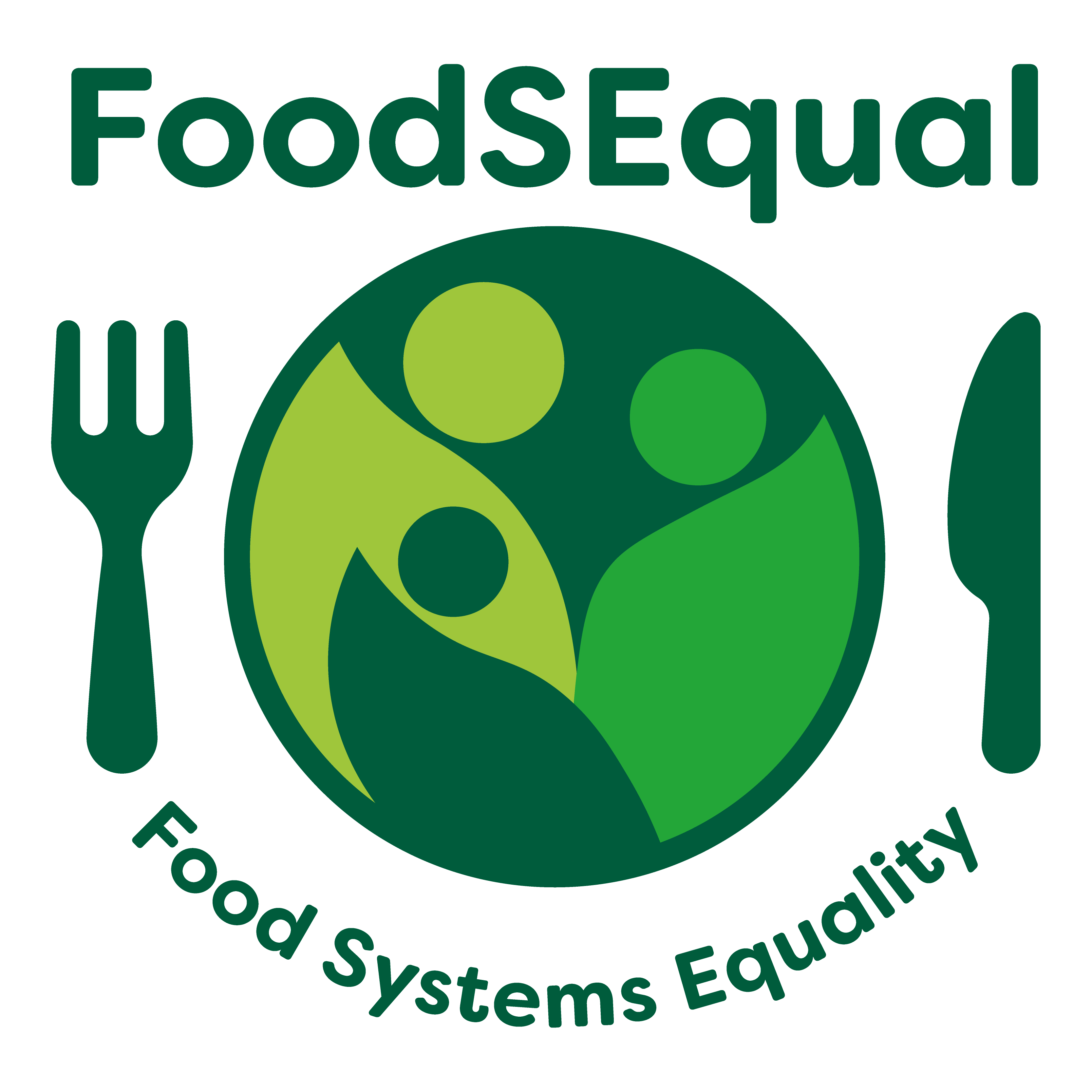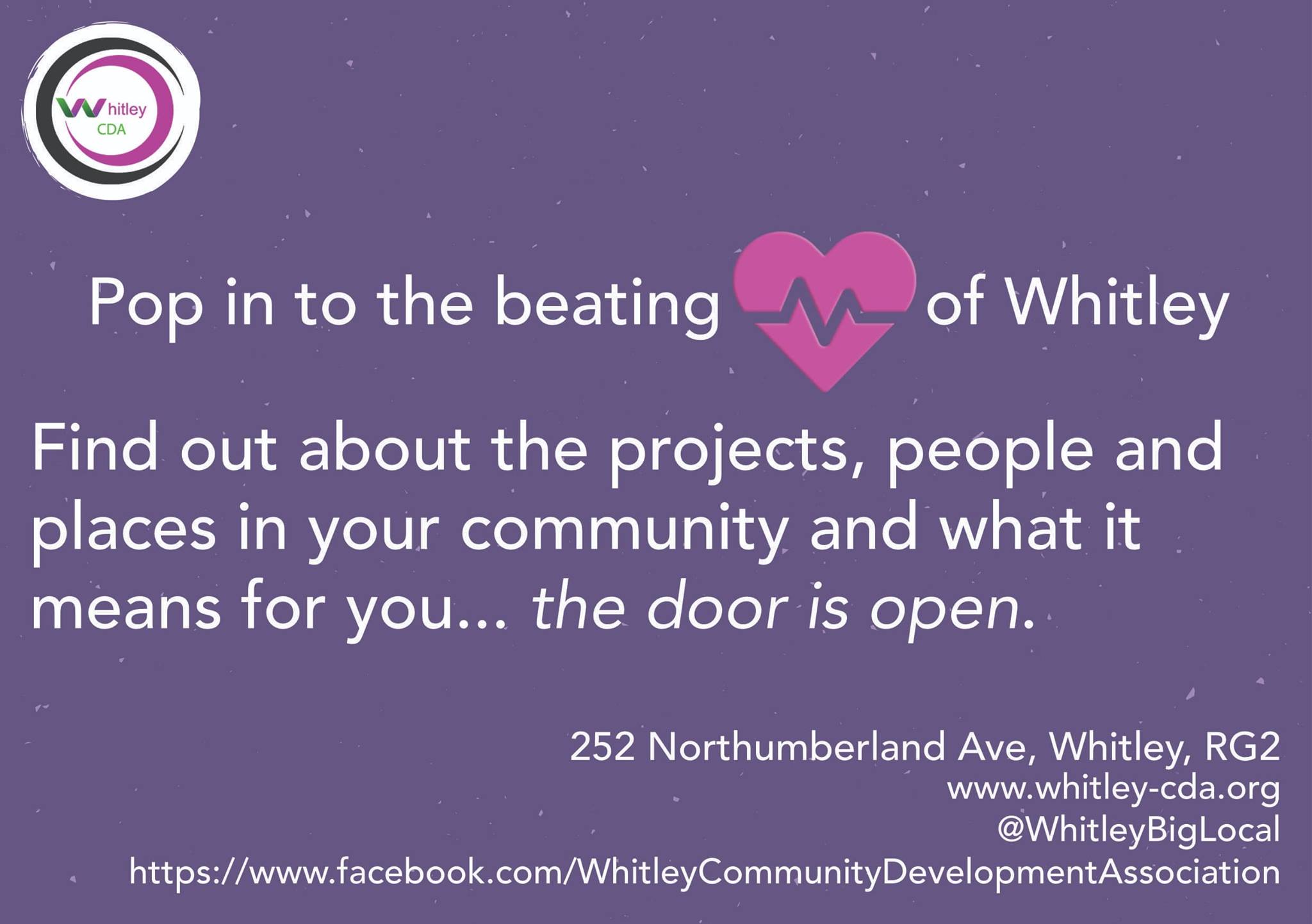The Whitley Community Development Association (Whitley CDA) located in Reading is a charity and one of the four community partners that support the Food Systems Equality project [FoodSEqual] – ‘Co-production of healthy, sustainable food systems for disadvantaged communities’..’ It was established in 2013 to work with local people and for local people.
The team led by Dr Trisha Bennett, Community Development Coordinator, run a Food Surplus Project, working with supermarkets industry partners and other to provide surplus food free to anyone who needs it, an advice shop, cafe, and other services. The community service they provide is vitally important, so it is no wonder they earned the title “the beating heart of Whitley” They are an important contributor in the FoodSEqual project’s ‘bottom-up approach’ to achieve a more accessible and affordable food supply that allows changes toward a healthier diet.
Trisha who has lived in Whitley for over 40 years, said “what’s very clear is that people in communities like this,… it’s not that they don’t understand what’s good for them or what is healthy, but that doesn’t always equate to what’s affordable.” She added that people don’t go into the supermarket thinking what has the most nutritional value? but what they can buy within their budget that will feed their family for that week.
Community research work
The FoodSEqual project is bringing together academic researchers, food industry partners and policy makers to reimagine food policy, products, and supply chains. Whitley CDA has recruited and trained some locally trusted Community Researchers (CR) who care about food, environment, and inequality. They are actively involved in the development and running of a series of different research methods such as questionnaires; focus groups; workshops; to name a few, engaging the local community members in the project. The community members are some of the people that come to the café and use the Food Surplus Project service. They come to the cafe for different reasons and because the researchers are respected and trusted, the participants are comfortable with sharing their stories, needs, and wants. Many have already participated in FoodSEqual activities such as the workshops and focus group and have provided valuable insights into their food aspirations. This is really helping to steer the project to develop food products that align with the desires of the local community – eat more nutritious and affordable food and to have choice in what they buy.
One such researcher, Kelly, is currently a cleaner and has been involved in FoodSEqual for a few months. She has lived in Whitley her whole life, mentioning that her family ‘go way back.’ In a conversation with Trisha and some of the FoodSEqual colleagues, she mentioned a case of a man who is in his sixties and attended one of the focus groups. He has a learning disability and usually comes to the café for breakfast. Kelly was concerned about what he eats for the rest of the day, so she asked him and his reply was that due to his medication, he sleeps most of the day, however for dinner he might have bread, cheese, or a takeaway. After asking if he had a microwave and a cooker, she got him some microwave meals and other food that he can cook on the stove. He has even attempted suicide, but the café keeps him going. There he is valued; he can openly tell the researchers what is going on and the researchers learn from listening to him. If it was with a stranger, he can put on a front. He gets one phone call a week from the care worker and with no other family support nearby. Kelly helps him and others like him more regularly not just with food, but also his washing and ironing.
Trisha added that they have quite a few older adults with a mild learning disability who do not meet any threshold for additional support. They tend to be forgotten about, as already stretched resources and services are prioritised by those most in need.
Focus group attendee to community researcher
Emily, who started out as a focus group attendee, decided become a Community Researcher to be more involved in the project. In her words she ‘wanted to know where the questions were coming from.’ What excites her about being a CR is being involved in a product that directly affects her. She describes herself as a low-income family who struggles to provide nutritious food for her children that is good value, that her children would want to eat, plus, not the same thing every day. She is also happy that the focus groups are quite diverse, ensuring as much as possible that various families and individual situations are represented. Over the summer holidays she ran an activity called ‘Tasty Tuesdays’ which was a way for children to get excited about trying new food, which was successful. She pointed out a running theme at the centre which is that parents really want their children to eat healthier, but they did not necessarily know how to prepare those kinds of meals, that there are areas in this community where some guidance is needed, herself included.
Emily hopes that in the end, the people that come into the café with these problems feel a little more comfortable in their everyday food lives. To turn food from being a negative, due to fear, money, preparation, fussy kids etc into an enjoyable experience again. Additionally, have avenues for people to access and enjoy better quality food that more affordable, and overall, healthy food relationships.
To conclude with a quote from Trisha “We’re educating every day, having conversations.”


